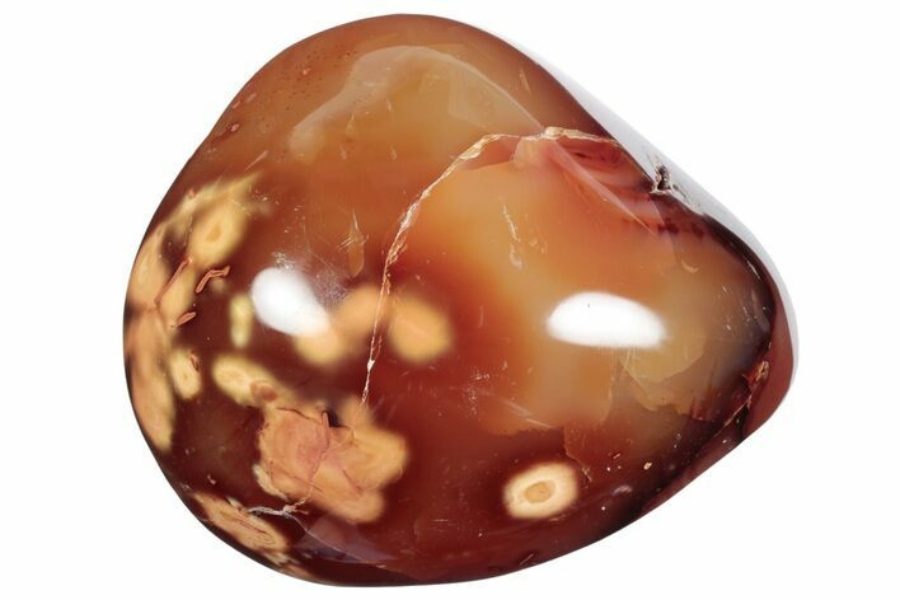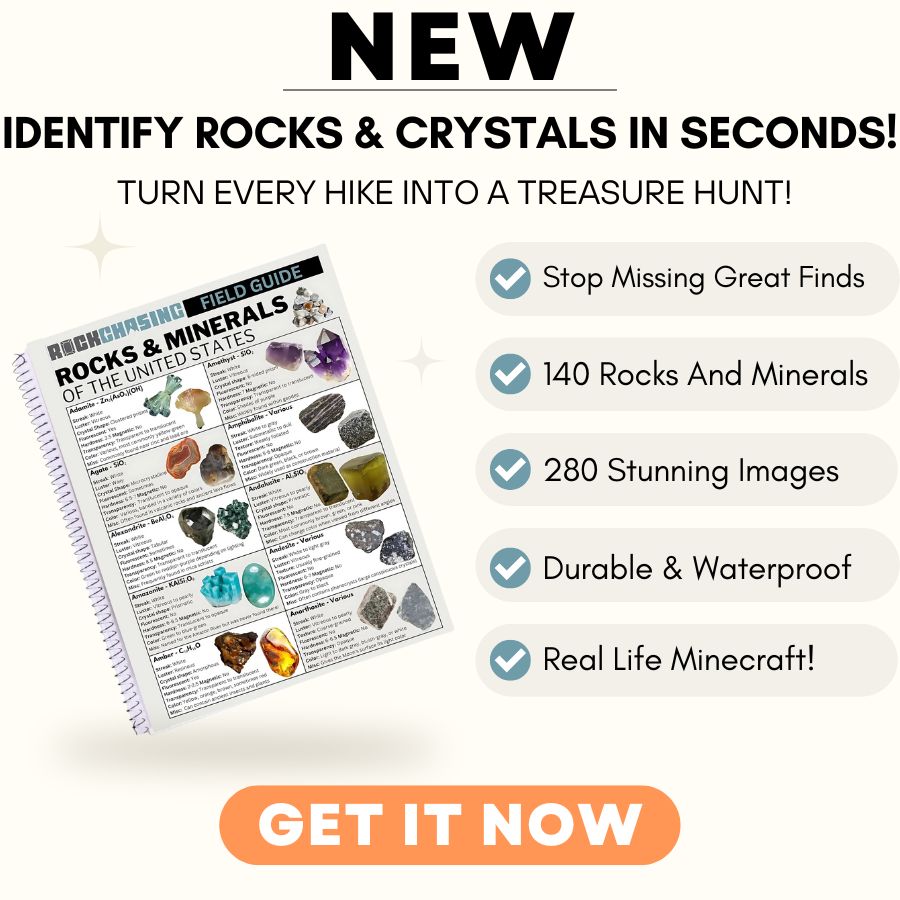The geological landscape of Iowa, shaped by ancient seas and glaciers, provides a rich foundation for forming various crystals. The state is especially known for its geodes, hollow, spherical rocks lined with crystals, primarily quartz and calcite.
These geodes are often found along riverbeds and limestone areas, revealing stunning crystal interiors when cracked open.
In addition to geodes, it also yields quartz crystals, often clear or slightly milky, and calcite crystals, known for their clear, glassy appearance and smooth surfaces. The state’s rich mineral resources arise from its unique geological history.
This article gives enthusiasts and collectors helpful information about the best places to look. We’ll talk about Cedar River, Bell’s Mills Park, and Muscatine, among a few. It will also give you tips for crystal hunting, like when to go and what tools you need. This makes it an essential guide for anyone interested in exploring!
- The extensive local experience and understanding of our team
- Input from multiple local crystal hunters and crystal collecting groups
- The accessibility of the crystal mining locations
- Safety and potential hazards when collecting
- Private and public locations
- A desire to include locations for both experienced crystal hunters and those who are just starting out
Using these weights we think we’ve put together the best list out there for those who love finding new crystals for our collections!
The Types of Crystals We Found
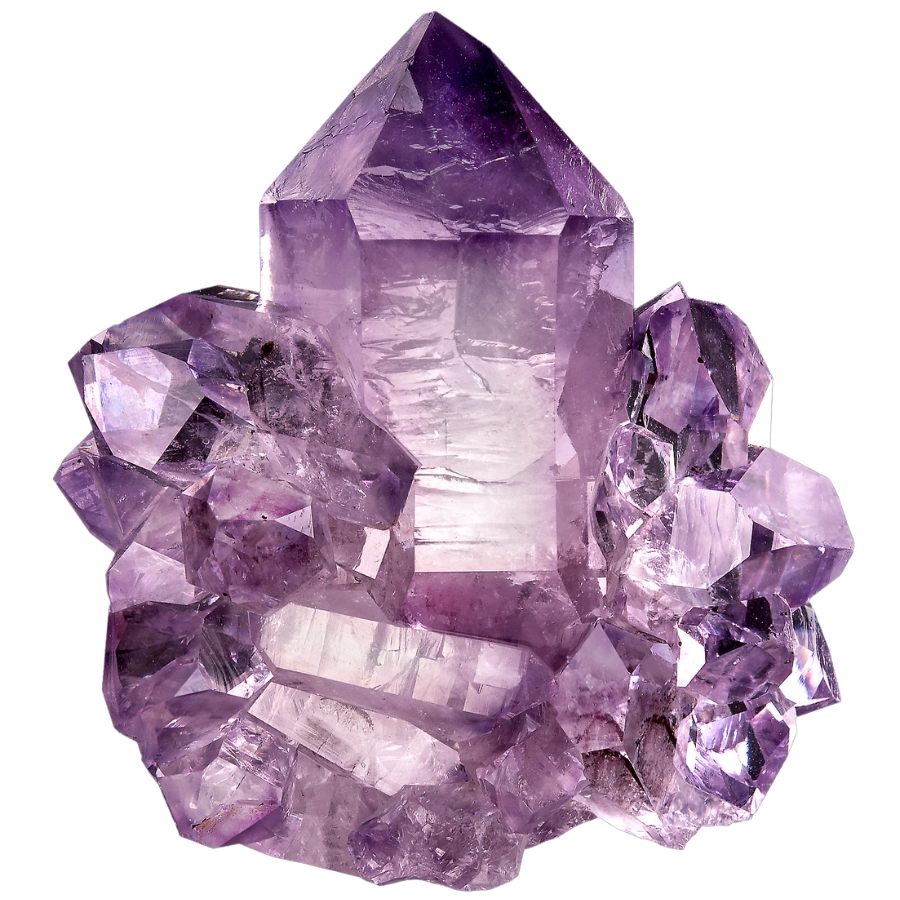
Iowa may not be known for having a lot of crystals, but the ones that can be found here are truly amazing. The beauty of these crystals lies not only in how they look, but also in how hard it is to find them.
There are still a lot of excellent rockhounding locations in the state, and these interesting and beautiful rocks make it even more fun to explore.
Rare crystals found in Iowa
- Amethyst
- Aragonite
- Carnelian
- Moonstone
- Sapphire
More common crystals found here
- Agate (Banded, Lake Superior, Moss, Oolitic, Sagenitic)
- Calcite
- Chalcedony
- Diamond
- Fossils
- Galena
- Hematite
- Jasper
- Onyx
- Pyrite
- Quartz
- Selenite
The Best Locations For Crystal Mining We’ve Found
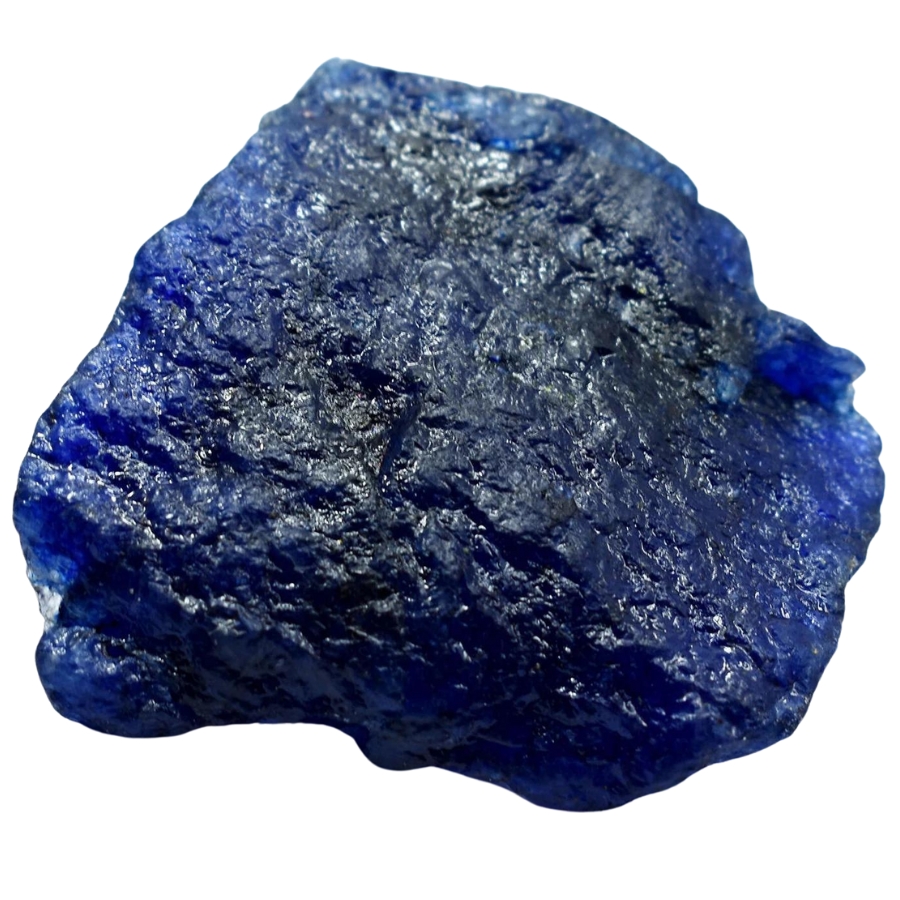
We had the best time exploring the following fine spots, and we think you’ll have great success finding crystals in these places, too.
Always Confirm Access and Collection Rules!
Before heading out to any of the locations on our list you need to confirm access requirements and collection rules for both public and private locations directly with the location. We haven’t personally verified every location and the access requirements and collection rules often change without notice.
Many of the locations we mention will not allow collecting but are still great places for those who love to find beautiful rocks and minerals in the wild without keeping them. We also can’t guarantee you will find anything in these locations since they are constantly changing.
Always get updated information directly from the source ahead of time to ensure responsible rockhounding. If you want even more current options it’s always a good idea to contact local rock and mineral clubs and groups
Cedar River
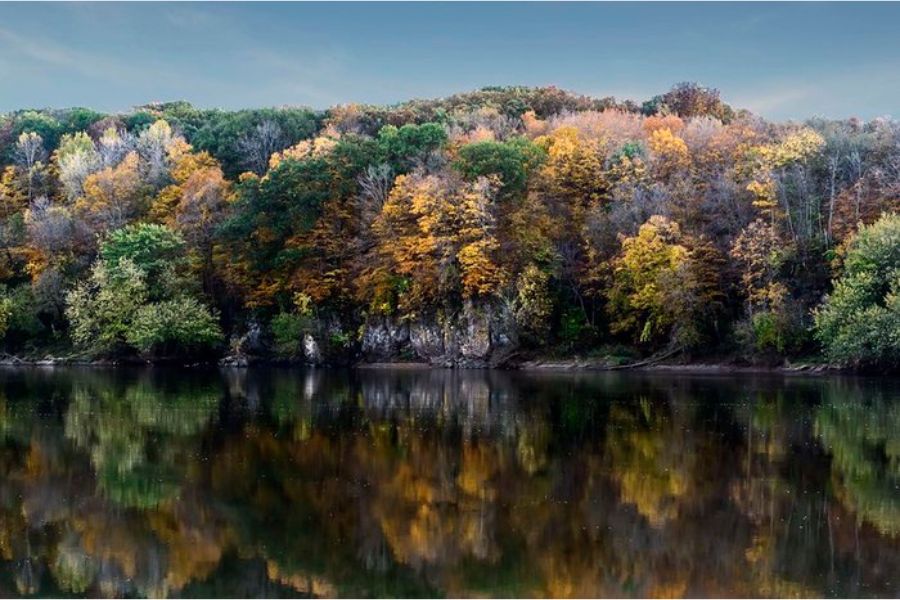
The Cedar River is an important natural resource with a long history and a diverse ecosystem. It flows for 338 miles before joining the Iowa River.
Historically, the river was very important to the growth of local communities because it was a way for early settlers and Native American tribes to travel and trade.
Its banks and riverbed are made up of sedimentary rocks, mostly limestone, which are good for geodes to form. When you break these sphere-shaped rocks open, you can see beautiful crystalline insides, mostly made of quartz and calcite. The erosion of the river exposes these geodes, making them easy for collectors to get to.
The riverbanks are home to a wide range of plants and animals, making it a great place for geology and nature lovers alike.
Where we found crystals at Cedar River
The area around the Cedar River has a history of volcanic activity, which has helped the variety and abundance of crystals in the area.
The river’s constant flow also exposes and polishes different minerals, making it possible to find unique and beautiful crystal specimens.
Bell’s Mill Park
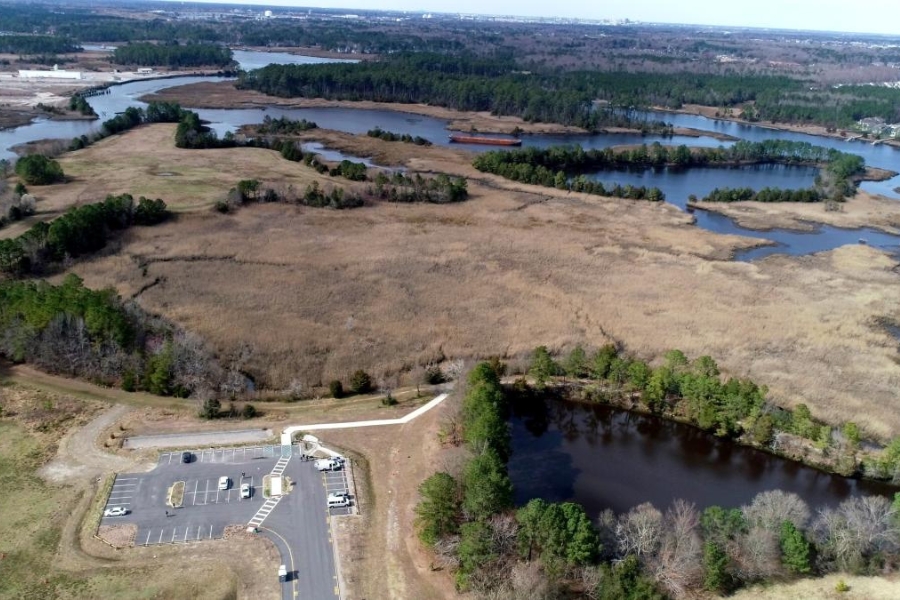
3100 Bells Mill Rd Stratford, IA 50249
Bell’s Mills Park is a hidden gem in the state’s scenic landscape. It has a rich tapestry of history and natural beauty. The park is named after a gristmill that the Bell family owned in the early 1800s.
It has remnants of the mill and the community that once thrived around it, which gives the park a layer of mystery and charm. It’s also among the best places to find Iowa gems.
The area around the park is known for its limestone formations, which are a good sign of possible crystal deposits. This limestone is part of the state’s natural makeup, comprised of sedimentary rock layers that formed over millions of years.
Where we found crystals at Bell’s Mill Park
You can find amazing samples of black Calcite cones through the outcrops and veins of Bell’s Mill Park.
Being close to water sources in the park, like streams and riverbeds, makes it more likely to find well-formed crystals. The steady flow of water helps to find and move these geodes, often polishing them.
DON'T MISS OUT ON ANY GREAT FINDS!
While you're out searching for Crystals you're going to find A LOT of other interesting rocks and minerals along the way. The last thing you want to do is toss out something really interesting or valuable. It can be easy to misidentify things without a little guidance.
We've put together a fantastic field guide that makes identifying 140 of the most interesting and valuable rocks and minerals you will find REALLY EASY. It's simple to use, really durable, and will allow you to identify just about any rock and mineral you come across. Make sure you bring it along on your hunt!
Muscatine
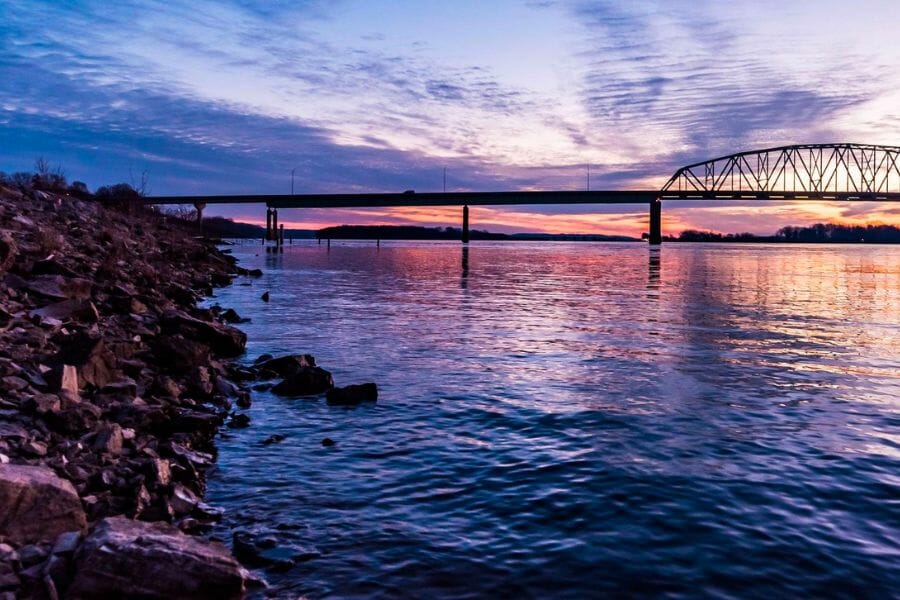
Muscatine County, IA
According to history, Muscatine started as a trading post in the 1830s and quickly grew into a thriving community. In the 1800s, it was known as the world’s largest pearl button manufacturer because of the large number of mussel shells in the river. This historical legacy gives the city its personality.
Muscatine’s location on the Mississippi River makes it a great place for crystal lovers. The river, a natural system that is always changing, has shaped the land over thousands of years, creating many mineral deposits.
The area is famous for its geodes in the sedimentary rock formations along the riverbanks. The erosion caused by the Mississippi River is a big part of how these geodes were found and made easier for enthusiasts to get to.
Where we found crystals at Muscatine
We highly recommend exploring the area gravels to south of Muscatine. Here, you’ll find samples of Agate (Lake Superior, Moss, Sagenitic), Chalcedony, and Quartz, among other crystals. Know more about how much crystals are worth in this article.
Bellevue
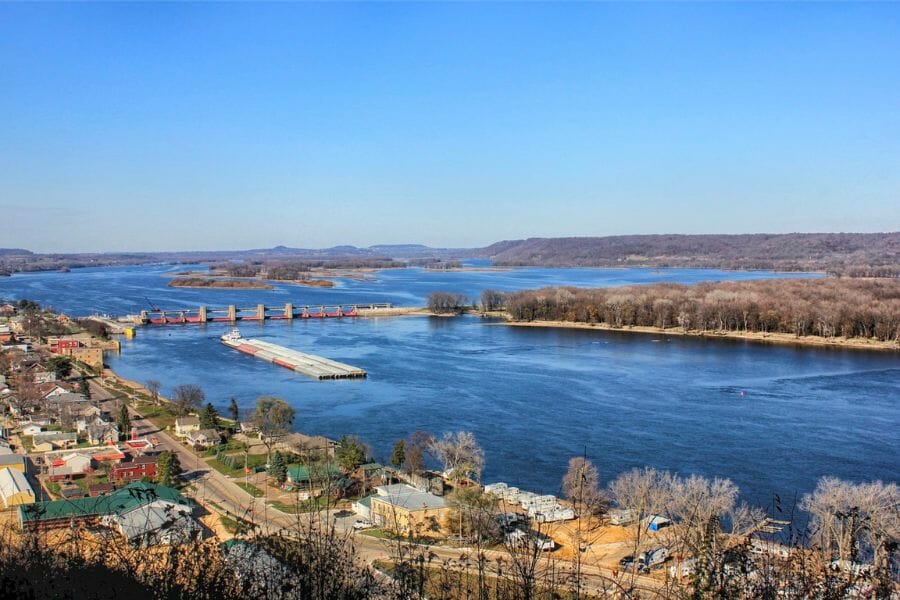
Jackson County, IA
Bellevue is a cute and beautiful town with a lot of history. It was founded in the early 1800s and quickly grew into a busy river town that was important for trade and transportation in the area. Its historic buildings and charming riverfront give Bellevue a unique and welcoming personality.
Notably, the area has a lot of sedimentary rocks, such as limestone, that are good for geode formation. Because the river is always moving, it helps to expose these geodes, making them easier for crystal hunters to get to.
With its beautiful riverfront and chance to find geological gems, Bellevue is a unique mix of the two.
Where we found crystals in Bellevue
Explore the Mississippi River gravels to find stunning specimens of Agate (Lake Superior, Moss), Carnelian, Moonstone, and Jasper crystals, among plenty other types.
Orient
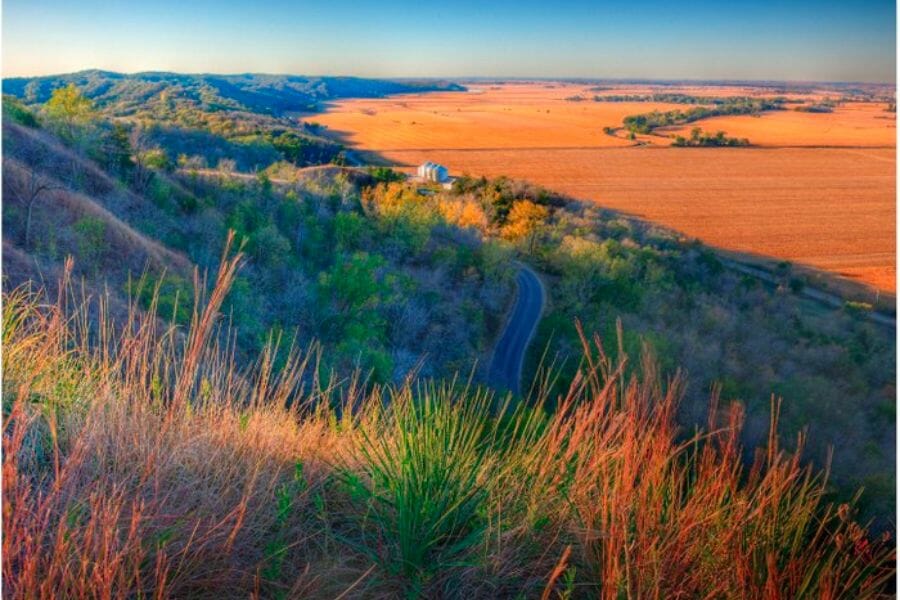
Adair County, IA
The small, peaceful town of Orient has a rich history that returns to farming in the Midwest. It was founded in the late 1800s, and its history is linked to the growth of farming and rural community life in the state. This quaint town, with its friendly people and beautiful scenery, captures the simplicity and charm of rural America.
Orient’s geology makes it stand out as a possible hotspot. The town is in a place where the geology is suitable for the formation of quartz crystals and other mineral treasures.
The soil and rocks beneath it, which include layers of sedimentary rocks like shale and limestone, have a greater impact on Orient’s crystal formations than places where rivers are the main feature.
Orient is a great place to experience both the natural beauty and the cultural heart of the Midwest.
Where we found crystals at Orient
This area is particularly known for having the most fantastic samples of Agate and Quartz. If you’re here, we recommend exploring the area 5 miles to northeast.
Dubuque
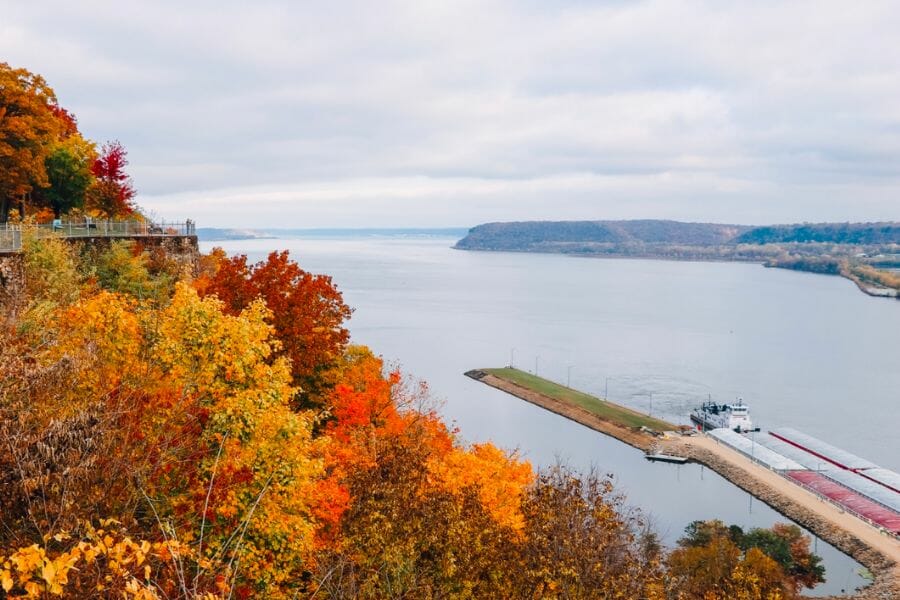
Dubuque County, IA
Dubuque has a rich history and culture along the bluffs of the Mississippi River. It was founded in 1833 and named after a French-Canadian explorer, Julien Dubuque.
This lively city has changed a lot since its early days from a hub for lead mining and fur trading to a modern center for the arts, education, and industry. The historic buildings and the revitalized riverfront show how the city has changed.
A big reason why crystal lovers like Dubuque is its location. The city is surrounded by limestone-rich areas that are part of the Driftless Zone and were not flattened by glaciers during the last ice age. This unique geological history has caused many minerals, especially geodes, to form.
Furthermore, the karst landscape of the area, which includes sinkholes and caves, makes it a perfect place for crystal growth.
Where we found crystals at Dubuque
Dubuque’s river gravels contain the most crystals here, including Agate (Lake Superior, Moss, Oolitic), Moonstone, and Jasper crystals, so we suggest exploring here first.
My Other Favorite Places For Crystal Hunting
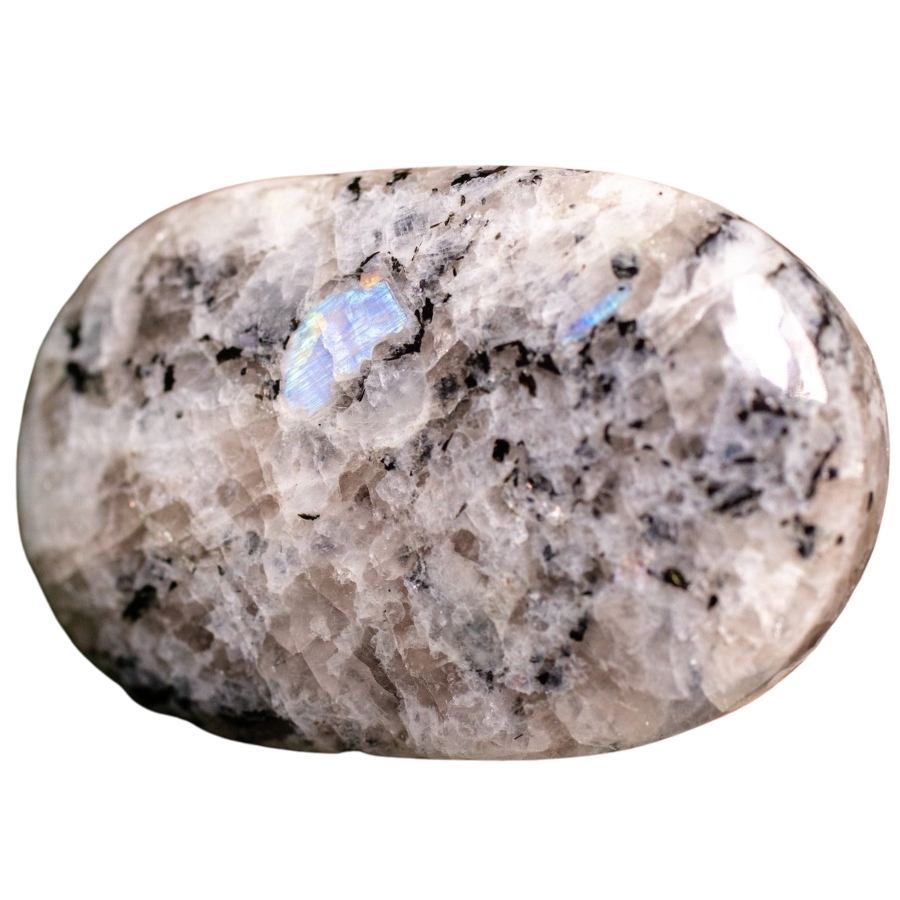
Despite its fairly limited crystal reserves, the state still has a lot more fine spots where you can find crystals. And since our state abounds in geodes, you can expect that the places we’ll share below are also some of the best sites to find Iowa geodes.
Where you can find crystals for free
If you aim to find and take home crystals without spending much, the following locations offer the best crystal reserves in our state without requiring any fees for searching through them.
| County | Location |
| Adair | Eastward at base of hills just south of Thompson River |
| Butler | Gravel pit of Shell Rock |
| Clayton | Guttenberg area |
| Clinton | At River Drive and Fourth Street in the Block Company gravel operation |
| Dallas | Mouth of branch at Raccoon River |
| Des Moines | Burlington area gravel-dredging operations and gravel pits |
| Dickinson | Shoreline of West Okoboji Lake |
| Fayette | County wide especially in streams |
| Henry | Mount Pleasant area |
| Keokuk | Keswick area quarry |
| Linn | Cedar Rapids area gravel pits |
| Mitchell | Osage area |
| Scott | Davenport area gravel pits |
| Story | Upstream on both sides of Indian Creek |
| Washington | At the Kaser Construction Company quarry |
Other great places to dig for crystals
If you’re willing to spend a few bucks to find the crystals you’re aiming for, here are the sites that require some fee. Take note that this fee may change depending on season (or they can free sometimes!), so call the place you’re targeting to visit first before heading out.
| County | Location |
| Allamakee | New Albin area mines |
| Appanoose | In coal mine dumps |
| Jasper | Area mines in Monroe |
| Mahaska | Oskaloosa area coal mine dumps |
| Marion | At the Pershing Mine dump |
| Monroe | Albia, Brompton, Foster, Lovilia, Melrose, and Tyrone area coal mine dumps |
| Polk | Des Moines area strip coal mines |
My tips for finding crystals
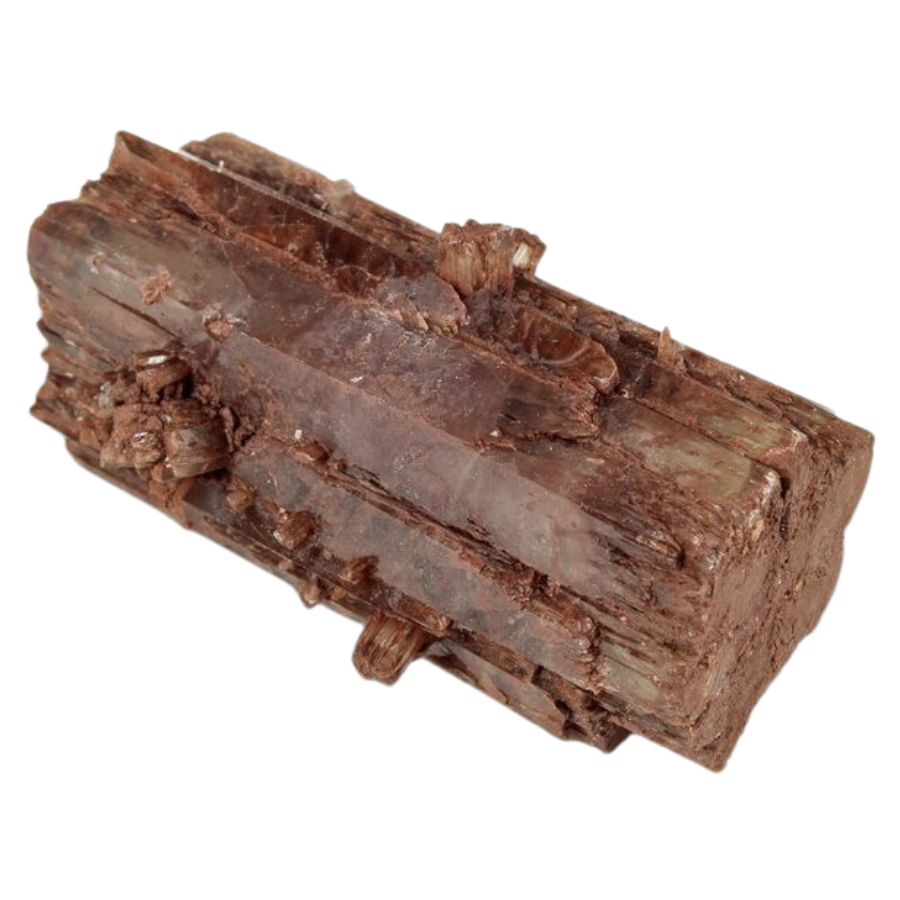
Many of the places we included above cover large areas, so to help you narrow your search, we’ll pinpoint the locations you can prioritize visiting. These are the best places to search for crystals:
Streams and Creeks
Looking for crystals in streams and creeks is a fun and interesting activity for crystal lovers and collectors. These natural waterways act as nature’s sifters, moving minerals from where they were originally found and often revealing hidden treasures to the careful observer.
The constant flow of water wears away rocks and soil, revealing crystals once buried deep in the earth. Crystals found in streams and creeks are often polished and smoothed by the moving water, bringing out their natural beauty and making them more appealing to the eye.
Quartz crystals, known for their variety and clarity, are especially easy to find in these places, as are other minerals like agates and jaspers.
Mines and Mine Dumps
Mineral fans love looking for crystals in mines and mine dumps because it directly links them to the Earth’s rich geological history. Mines that used to extract quartz, silver, gold, or other minerals often leave behind many crystals that are often missed during the mining process but can be a collector’s treasure trove.
Mine dumps, which are piles of broken down rock and other mining waste, are especially good places to look for minerals. One of the benefits of searching mine dumps is that you can find a lot of minerals that were in the mine’s geological layers.
River and River Banks
Flowing water naturally sorts things into different groups, which makes looking for crystals along rivers and riverbanks a fun and rewarding activity for mineral enthusiasts.
Rivers, especially those that cut through areas with lots of minerals, are great places to find and move crystals because the water wears away at the rocks and land around them, revealing hidden crystal formations and carrying them downstream.
The best places to look for crystals in rivers are usually where the water moves more slowly, like around bends, eddies, or the downstream side of boulders. This is because heavier things, like crystals, tend to gather in these places.
The banks and shallow areas of rivers are also great because erosion can reveal mineral-rich layers, making it easier to find crystals in the rock or soil.
The Mining Laws And Regulations You Should Know
Our state has set crystal mining laws, and as long as you comply with them, you can legally mine here. Check out the Iowa Department of Natural Resources to familiarize yourself with these laws related to exploring our state for crystals.
Ensure you are also aware and compliant with existing rules and regulations to protect our environment and biodiversity. Taking home our crystal finds shouldn’t be our only goal, but to also help maintain crystal mining as a sustainable activity for other rockhounds.
The Best Crystal Shops The Area
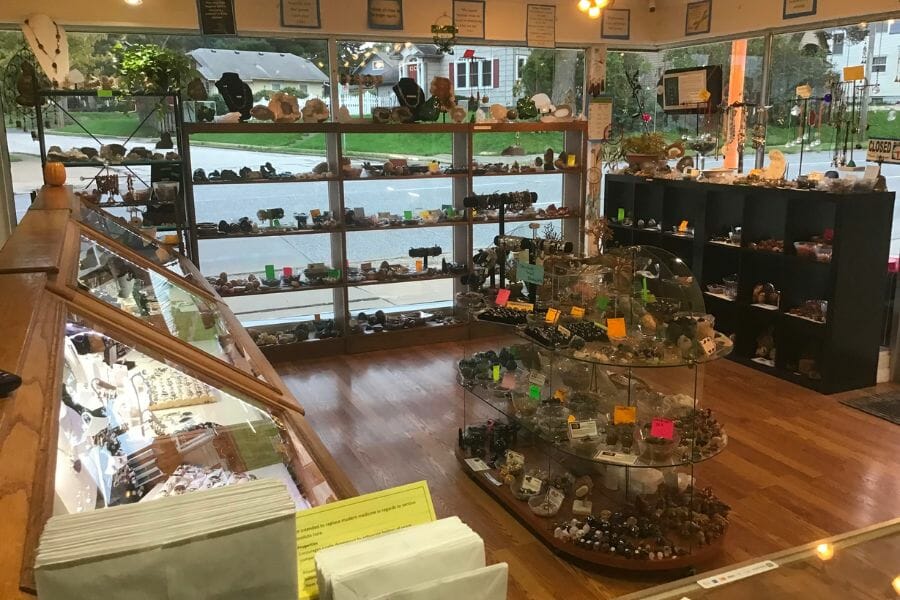
If you’re looking for a less strenuous but successful way to find and bring home crystals, we recommend visiting the local crystal shops here. Below is a list of the best ones we have:
- Dories Crystals and Things – 101 Pearl St, Council Bluffs, IA 51503
- PrismScape Gems & Healing Center – 1700 S 1st Ave #11c, Iowa City, IA 52240
- Chakra Khan Crystals – 1800 Grand Ave, West Des Moines, IA 50265
- Little Rock and Gem Shop – 3002 N Brady St, Davenport, IA 52803
- Mood Crystals and Stones – 918 Broadway St #2, Emmetsburg, IA 50536
- Realive Metaphysical Shop – 3800 Wilson Ave SW, Cedar Rapids, IA 52404
- Studded With Love – 1122 W 4th St, Waterloo, IA 50702
- Ema’s Elegance Specialty Stones – 811 Story St, Boone, IA 50036
- Ancient Ways – 2420 University Ave, Des Moines, IA 50311
- The Moon Awakening – 908 SE 6th St, Des Moines, IA 50309
Additional places to find crystals in nearby states
If you’ve already tried all of our recommendations above or are planning a trip out of the state, you should check out our guides for neighboring states:
- Crystals in Minnesota
- Crystals in Wisconsin
- Crystals in Illinois
- Crystals in Missouri
- Crystals in Nebraska
- Crystals in South Dakota
If you have any recommendations we haven’t covered, please leave them in the comments below!

